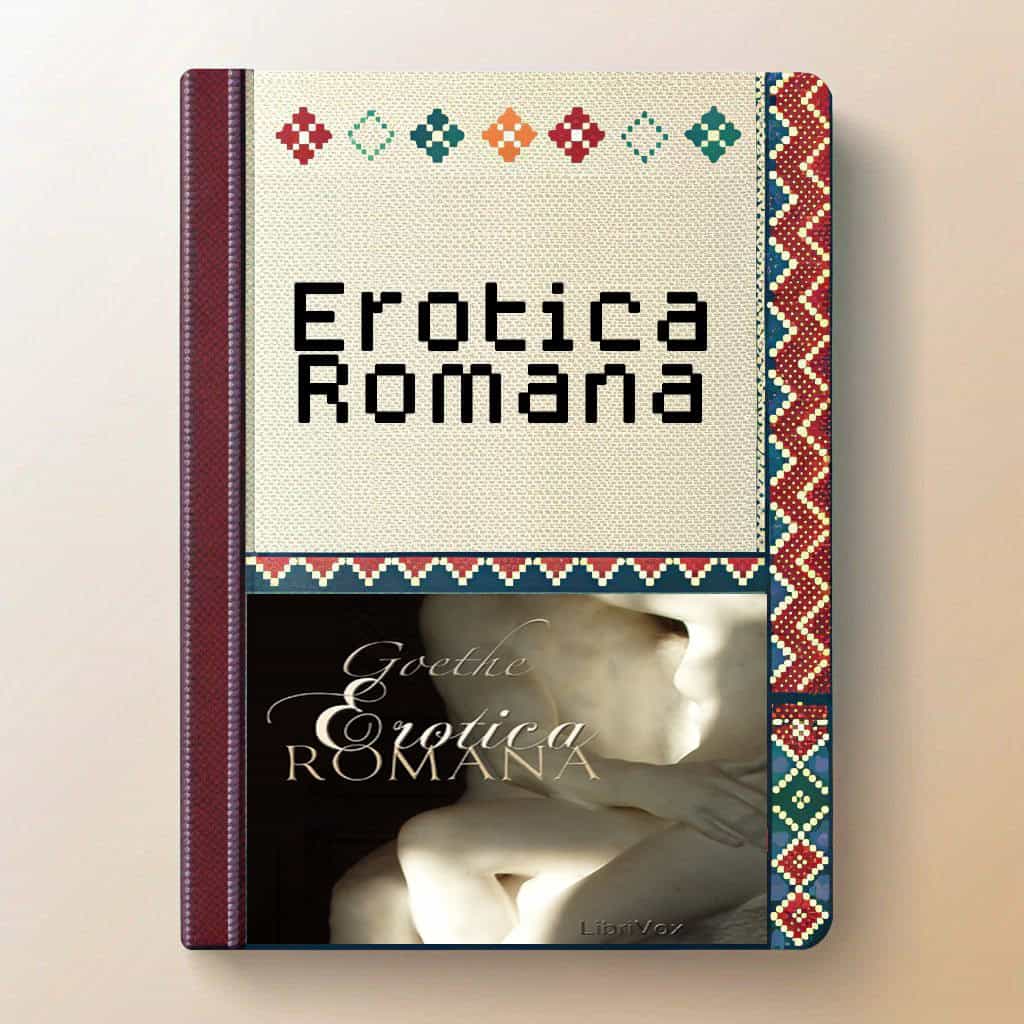Audiobook Sample
Listen to the sample to experience the story.
Please wait while we verify your browser...
- Title: Erotica Romana
- Author: Johann Wolfgang Von Goethe
- Narrator: A. E. Maroney
- Length: 00:46:00
- Version: Abridged
- Release Date: 01/01/2011
- Publisher: LibriVox
- Genre: Erotica, Modern
- ISBN13: SABFAB9780420
Dear explorers of the literary soul,
There’s something undeniably magnetic about Johann Wolfgang von Goethe’s *Erotica Romana*, or the *Roman Elegies*, a collection of twenty-four poems that weave together sensuality, classical beauty, and the pulse of human experience. When I first encountered this audiobook, narrated by A. E. Maroney and offered free through LibriVox, I was curious to see how Goethe’s lyrical tribute to love and eroticism—penned during his transformative years in Rome—would translate into sound. What fascinates me most is how this listening experience bridges the gap between the classical past and our modern sensibilities, much like a cultural lens refracting light through time.
As a professor of comparative literature, I’ve spent years dissecting how narratives shift across languages, cultures, and mediums. This reminds me of when I was a visiting professor in Tokyo, diving into Haruki Murakami’s *Kafka on the Shore* in both English and Japanese. The fluidity of meaning across translations revealed how language shapes perception—much like Goethe’s elegies shift when spoken aloud. Hearing *Erotica Romana* narrated felt akin to that discovery: the rhythm of Maroney’s voice brought a new intimacy to Goethe’s words, as if I were strolling the sunlit streets of Rome alongside him, witnessing his liberation from Weimar’s constraints.
Through a cultural lens, *Erotica Romana* is a celebration of physical love and artistic freedom. Goethe, inspired by Roman poets like Tibullus, Propertius, and Catullus, crafts elegies that pulse with erotic desire and classical idealism. The poems revel in the body’s pleasures—vividly capturing stolen glances, tender embraces, and the warmth of a lover’s skin—while intertwining these with Rome’s timeless art and architecture. Listening to lines like those describing the ‘marble forms’ of ancient statues, I could almost feel the cool stone under my fingertips, a testament to Goethe’s ability to blur art and life. Yet, there’s a deeper thread here: a subtle nod to mortality, a reminder that beauty and desire are fleeting, much like the Roman ruins he admired.
Maroney’s narration enhances this audiobook experience profoundly. His voice carries a measured cadence that mirrors the elegiac form—steady yet evocative, allowing the sensual imagery to unfold naturally. The free audiobook format, clocking in at just over 45 minutes, makes it an accessible entry into Goethe’s world, though its brevity left me longing for more. The audio quality, typical of LibriVox’s volunteer efforts, is clear if unpolished, with occasional background hums that momentarily pull you out of the Roman reverie. Still, Maroney’s skill lies in his restraint; he doesn’t overdramatize but lets the poetry’s inherent musicality shine, making this a compelling listening experience for both newcomers and seasoned Goethe enthusiasts.
What resonates with me personally is how *Erotica Romana* mirrors moments from my own academic journey. In my Contemporary Fiction seminar at Berkeley, we once debated how different mediums—print, digital, audio—shape a story’s impact. Comparing *Cloud Atlas* across formats sparked insights into narrative immersion, and I found a similar revelation here. The audiobook medium strips away the visual distraction of text, letting Goethe’s rhythm and Maroney’s intonation guide the imagination. It’s as if the spoken word resurrects the oral tradition of classical poetry, a nod to how these elegies might have been shared in ancient Rome.
That said, the work isn’t without its complexities. Historically, *Erotica Romana* faced censorship for its frank eroticism—some critics deemed it vulgar, others a bold masterpiece. Listening today, I appreciate Goethe’s courage in merging sensuality with intellectual depth, though certain passages might feel dated or overly indulgent to modern ears. The audiobook’s brevity, while a strength for accessibility, limits the depth of engagement compared to a full reading of Goethe’s broader oeuvre. And while Maroney’s narration is commendable, a touch more warmth could have elevated the emotional stakes of Goethe’s passionate verses.
For comparison, I’m drawn to Ovid’s *Amores*, another collection of love poetry that dances between desire and wit. Goethe’s elegies, however, stand apart for their fusion of personal liberation with classical reverence—less satirical than his own *Venetian Epigrams*, yet more grounded than the fantastical eroticism of, say, the Marquis de Sade. This audiobook experience thus offers a unique lens into Goethe’s Italy-inspired renaissance, a moment where art, love, and freedom converge.
I’d recommend this free audiobook to anyone intrigued by erotic literature with a literary soul—students of classical poetry, lovers of Goethe’s lyrical genius, or those simply seeking a sensory escape. It’s perfect for a quiet evening, perhaps with a glass of wine, letting Maroney’s voice transport you to Rome’s golden glow. For scholars, it’s a chance to hear how Goethe’s classical influences resonate aloud; for casual listeners, it’s an invitation to savor beauty and desire in bite-sized form.
Reflecting on this, I’m struck by how *Erotica Romana* captures what I’ve always chased in literature: the interplay of culture, emotion, and form. It’s a reminder of why I fell in love with storytelling—its power to connect us across centuries, to make us feel the weight of a poet’s longing in our own bones. This audiobook, flaws and all, is a small but potent testament to that enduring magic.
With literary appreciation and a nod to the timeless, Prof. Emily Chen
Prof. Emily Chen

